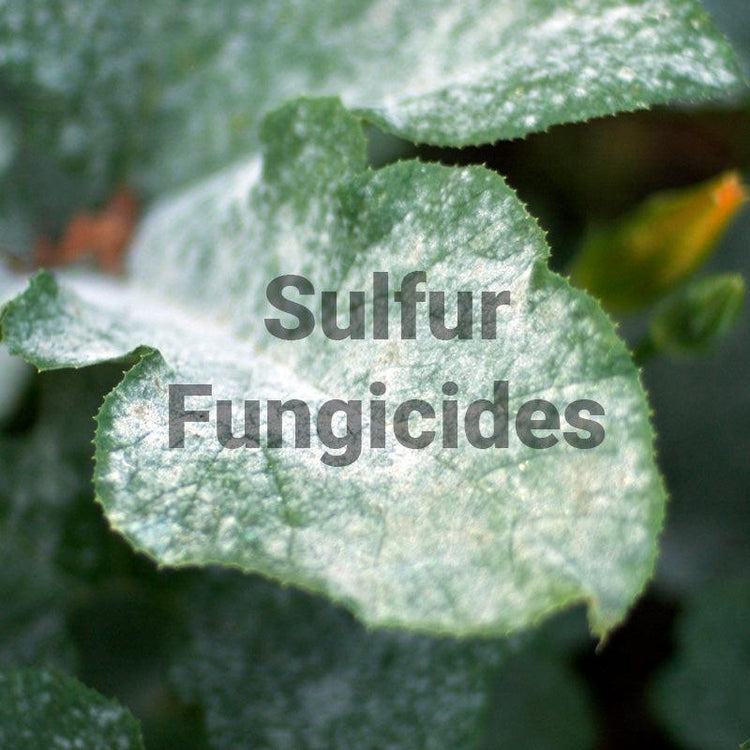
Sulfur Fungicides: Effective Solutions for Plant Health
Introduction
Sulfur fungicides are essential tools for maintaining the health and vitality of your crops. Derived from sulfur compounds, these products are highly effective in controlling fungal diseases, pests, and certain mites, making them a must-have for any gardener or farmer. Explore our high-quality sulfur fungicides, designed to provide reliable protection for your plants. With their proven effectiveness and easy application, our sulfur fungicides are the perfect solution to keep your garden thriving and pest-free.
Understanding Sulfur Fungicides
Sulfur Basics
Sulfur fungicides, as the name suggests, are products primarily composed of sulfur or sulfur-containing compounds. Sulfur has been used in agriculture for centuries due to its natural fungicidal properties. It works by inhibiting the growth and reproduction of fungal pathogens, making it an invaluable tool for disease control in plants.
Sulfur Fungicides Types
There are several different types of sulfur fungicides, each with its own unique characteristics and applications:
-
Dusting Sulfur: Dusting sulfur is finely ground sulfur that can be applied directly to plants as a powder. It is often used to control powdery mildew, a common fungal disease that affects a wide range of crops. Dusting sulfur is easy to apply and provides quick relief from fungal infections.
-
Wettable Sulfur: Wettable sulfur is sulfur formulated into a wettable powder or liquid concentrate that can be mixed with water and sprayed onto plants. It is effective against a broader spectrum of fungal diseases, including rust, scab, and black spot. Wettable sulfur provides thorough coverage and is ideal for larger gardens or farms.
-
Lime-Sulfur: Lime-sulfur is a mixture of sulfur and calcium hydroxide. It is often used as a dormant spray in fruit tree orchards to control overwintering pests and diseases. Lime-sulfur is particularly effective against scale insects and certain fungal infections.
Applications and Benefits
Sulfur Fungicides Applications
Sulfur fungicides find applications in various horticultural settings, including home gardens, orchards, vineyards, and commercial crop production. Their versatility makes them indispensable for preventing and managing fungal diseases.
-
Disease Prevention: One of the primary uses of sulfur fungicides is disease prevention. Regular applications can create a protective barrier on plant surfaces, making it difficult for fungal spores to establish and grow.
-
Disease Management: In cases where fungal diseases have already taken hold, sulfur fungicides can help manage the infection by slowing down the spread of the pathogens and reducing their impact on plant health.
-
Mite Control: Sulfur fungicides also possess acaricidal properties, making them effective against certain mite species that can harm plants. This dual function makes them a cost-effective solution for managing multiple threats.
Sulfur Fungicides Benefits
The use of sulfur fungicides offers several key advantages:
-
Environmentally Friendly: Sulfur is a naturally occurring element, and its use in fungicides is generally considered environmentally friendly compared to synthetic chemical alternatives.
-
Residue Management: Sulfur fungicides tend to leave minimal residues on harvested produce, ensuring that food safety standards are met.
-
Resistance Management: Because sulfur operates differently from many synthetic fungicides, it can be an essential component of an integrated pest management strategy to combat the development of resistance in fungal populations.
-
Versatility: With different types of sulfur fungicides available, growers have the flexibility to choose the most suitable product for their specific needs.
Safety Considerations
While sulfur fungicides are generally safe to use, it's essential to follow label instructions carefully. Overuse or misuse can lead to sulfur toxicity in plants and potential harm to beneficial insects. Protective gear, such as masks and gloves, should be worn when handling sulfur fungicides, and applications should be timed appropriately to minimize any adverse effects on non-target organisms.
Sulfur fungicides have a long history of effectiveness in managing fungal diseases and pests in agriculture. Their diverse range of applications and benefits makes them a valuable tool for gardeners and farmers striving to protect their crops while minimizing environmental impact. Proper use and adherence to safety guidelines are crucial to maximize the benefits of these products while ensuring the health and vitality of plants.